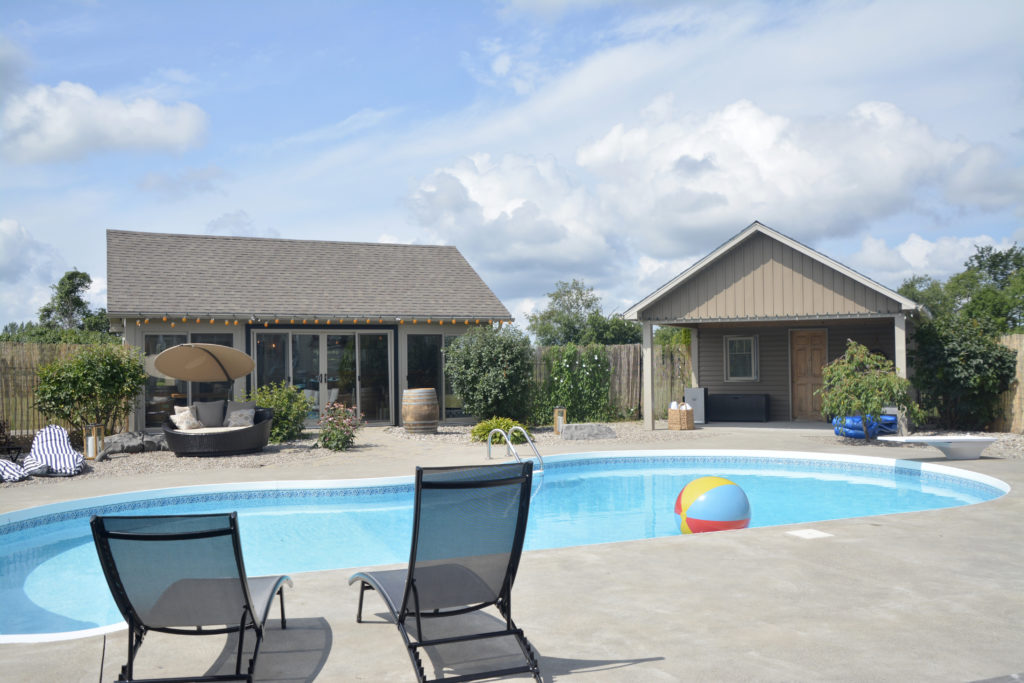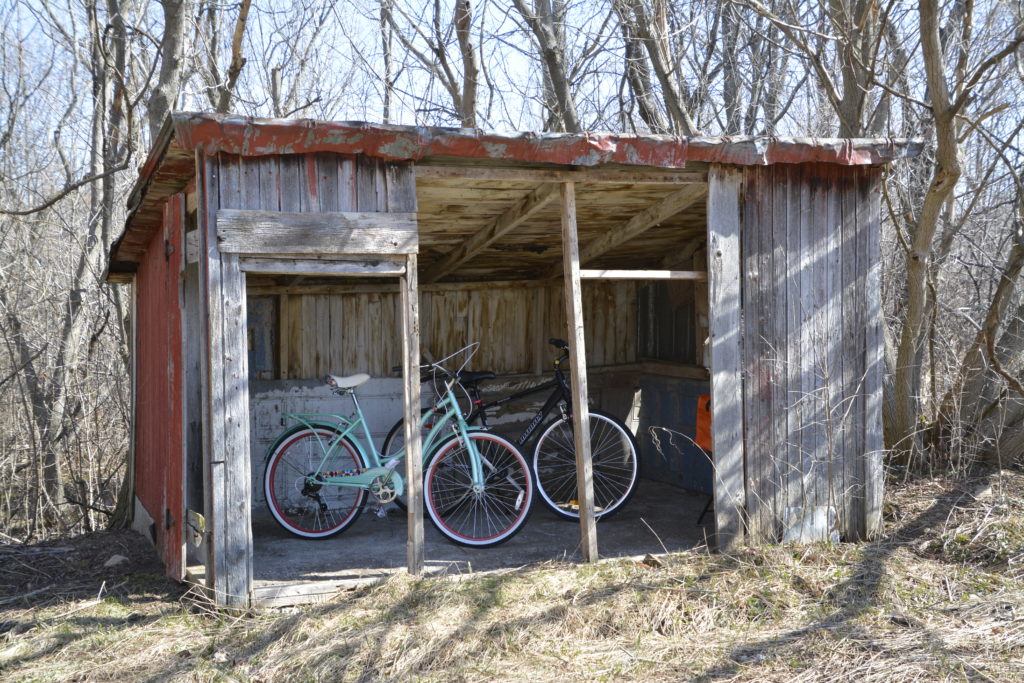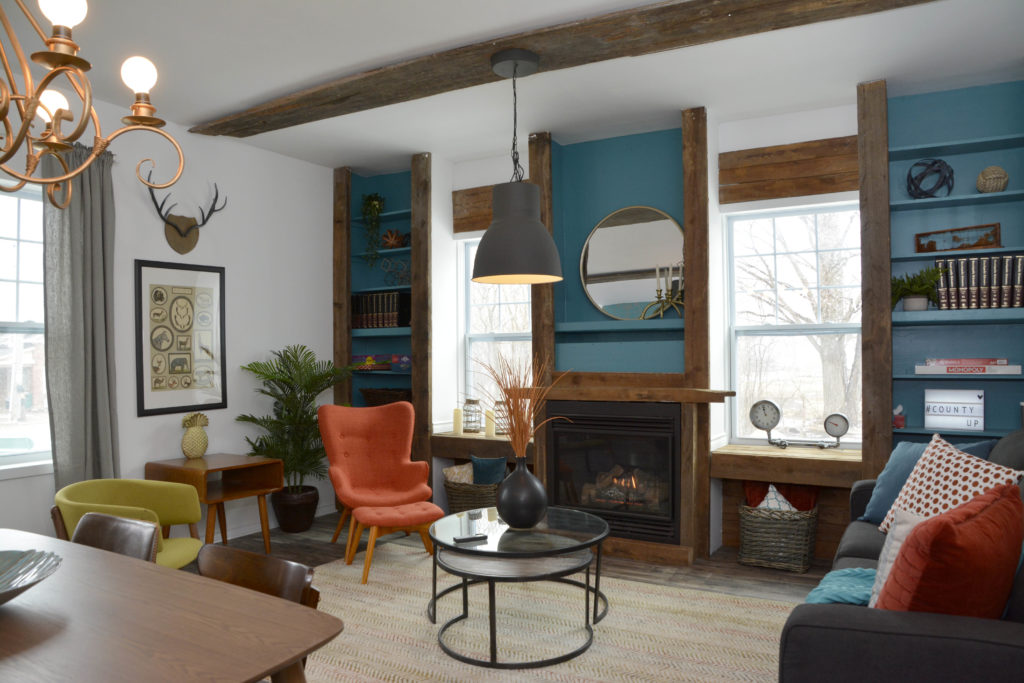— We take our content seriously. This article was written by a real person at BREL.
Wondering how to become an Airbnb host at your cottage? Today, we’re sharing our best tips to Airbnb your vacation home.
Note: We’re using the term Airbnb to refer to renting your cottage out short-term, whether that’s on Airbnb or any of the short-term rental sites.
Ontario’s Airbnb Vacation Market
Ontario’s cottage country and vacation home markets are popular weekend getaway destinations. Whether it’s Prince Edward County, Muskoka, the Kawarthas or elsewhere, it stands to reason that there are thriving short-term rental markets out there. Whether you’re looking to offset the costs of owning a second home, build equity in your future retirement dream place or are simply looking to invest in a more cash-flow positive investment property, the Airbnb market offers some amazing opportunities.
If you’re a part-time Airbnb host, you can expect to offset most (if not all) of your basic costs, and full-time hosts are almost always cash positive (sometimes to the tune of $500 or $1000 or more a month).
What to Expect When You Start an Airbnb
The Ontario Cottage Rental Season
The rental season in most of Ontario’s cottage areas traditionally runs from May to September, though some locations see strong Airbnb demand throughout the year, depending on the type of accommodation and where the Airbnb is located.
Ontario Cottage Airbnb Rental Rates
Rental rates for short-term accommodations vary greatly and depend on location, size, condition, style, features, reviews and marketing. Bigger properties and those with more bedrooms rent on Airbnb for more money. As of writing (September 2019), Airbnb estimates monthly income for a home that sleeps 6 people (assuming a 50% vacancy rate) as follows:
Bancroft – $2,832/month
Cobourg – $3,467/month
Grand Bend – $3,736/month
Haliburton – $3,590/month
Huntsville – $2,711/month
Kawartha Lakes – $2,094/month
Manitoulin Island – $3,385/month
Muskoka – $3,709/month
Niagara-on-the-Lake – $4,262/month (Note: most of the Niagara area does not allow short-term rentals)
Port Dover – $2,404/month
Prince Edward County – $3,228/month
Wasaga Beach – $2,857/month
Airbnb Vacancy Rates
While vacancy rates depend on a lot of factors (location, weather and seasonality, your marketing activities and photos, reviews, etc.), you can conservatively expect to book out your home or cottage 30% of the time.
Short-Term Rental Regulations
The proliferation of Airbnbs in Ontario’s cottage country areas has impacted communities and the price of housing, in both positive and negative ways. Many areas (including Prince Edward County, Niagara and Collingwood) are in the process of instituting rules to regulate the short-term/Airbnb market. For example, Prince Edward County has passed bylaws requiring licensing in 2020 and grandfathering current Airbnb rentals while restricting new ones.
Make sure to talk to a local REALTOR to understand the implications before you buy a property.
 Considerations When Buying a Short-term Rental
Considerations When Buying a Short-term Rental
When you buy a property with the primary purpose of renting it out short-term, consider the following:
- Location, Location, Location – Everyone knows the three rules of buying real estate: location, location, location. Well, it’s even more important when buying a property to use as an Airbnb, as your location will dictate how much you can charge per night and how often you’re booked. Popular short-term rentals are usually located near beaches, wineries, breweries and tourist areas. Proximity to highways and ease of travel from cities (specifically, Toronto) are also important.
- Size – Bigger homes attract bigger groups of people who may want to host parties – but more rooms usually command higher prices. The number of bedrooms is one of the main criteria vacationers use to search for a property, and it will certainly impact your price per night.
- Waterfront – Your short-term rental doesn’t have to be on the water to be popular…though waterfront properties are usually the first to be booked.
- Features – Short-term vacationers get excited about the sexy stuff, the things they don’t have at home:
- Pools and hot tubs (though these require regular maintenance)
- Outdoor decks and BBQ’s
- Multiple living areas
- Easy parking
If you’re looking to start an Airbnb, it’s important to have the right kind of property that will be in demand.
Other Amenities to Consider for Your Airbnb
- Furnishings, appliances and equipment – You’ll get a much higher price per night if you furnish it with stylish, good quality furnishings. Buy furnishings in neutral colours, but avoid whites and beiges – the wear and tear from multiple short-term vacationers will quickly reduce their attractiveness. Budget for the extras too: dishes, pots, pans, towels, sheets, bed covers, cutlery, etc. Again, you want to invest in good quality items, so you have to replace them less often…but not so high-end that if someone ruins a towel, you’ll be upset.
- Dishwasher, laundry and air conditioning – These are definite nice-to-haves amenities in your Airbnb, and your guests will appreciate it.
- Fun Stuff – Take the opportunity to surprise and delight your guests. Ping-pong tables, kayaks, bikes, indoor and outdoor games, an ice cream maker or a Slip ‘n Slide, can go a long way to making a memorable Airbnb vacation.
- Internet and WIFI – Great wifi is critical to keep your guests happy and avoid bad reviews.
- Cell Phone Service – Before you put an offer on a place, make sure your phone works at the house. It’s not unusual to find cell dead zones in smaller communities
- Cable or Netflix – A surprising number of people watch TV while they are on vacation.
 How to Start an Airbnb: Financing, Insurance, Taxes and Costs
How to Start an Airbnb: Financing, Insurance, Taxes and Costs
Financing Your Airbnb
The key to any investment is getting the return that you want. When calculating the ROI on your Airbnb, you’ll need to consider maintenance, property management costs, furnishings, professional cleaning, and vacancy rates, which all need to be factored into your math.
Financing a short-term rental property involves these special considerations:
- Down payment: if you already own a property, your lender will probably require a 20% downpayment
- Seasonal properties: banks look at 3-season properties differently when it comes to mortgage financing. If you need a mortgage, talk to your lender before signing on the dotted line so you know how they see things.
- Qualifying: When determining how much you can afford, your lender will not likely take into consideration the rental income you’ll be making from renting it out short-term. Banks like 12-month leases and guaranteed income.
For complete information on financing an Airbnb, read: Financing a Cottage or Second Home
Home Insurance for Your Airbnb
Be honest with your insurance company about the intended use of the home or cottage. Yes, using your home as a short-term rental will mean higher premiums…but it’ll also mean you’re covered in the event something happens (which is kind of the whole point of insurance). Airbnb and some of the other vacation rental sites offer additional insurance options that are worth considering too.
Taxes on Your Airbnb
Always talk to your accountant about taxes and don’t trust the internet!
The money you collect from renting out your property is taxed as income, but you will get to deduct an apportioned amount of the cost of the interest on your mortgage and operating expenses. When you sell the property in the future, it will likely be subject to capital gains taxes (unless it’s your primary home). Your accountant can you fill you on how that might affect your individual tax situation.
Also: talk to your accountant about whether or not you should be charging HST.
Airbnb Rental Costs
Managing a short-term investment property takes time and money. Some of the activities you’ll need to plan and budget for:
- Advertising and maintaining listing photos and copy
- Managing bookings and rental contracts
- Managing deposits and payments
- Check-ins and check-outs
- Coordinating cleaning
- Inspecting the property post-check-outs
- Managing one-off issues (wifi not working, damage, etc.)
It’s possible to outsource the property management functions; this will generally cost about 12-15% of your gross monthly income.
Marketing Your Short-Term Rental Home or Cottage
You’ll need to plan for the following:
- Advertise online – While there are dozens of short-term rental sites out there, the most popular ones are:
- Airbnb
- Homeaway.com
- VRBO.com
- Invest in Gorgeous Photos – Hire a pro to showcase your Airbnb at its best. It’s easy way to look better than your competition and will only cost you a few hundred dollars.
- Reviews – Reviews are the cornerstone of the short-term rental market, so make sure that the people have a fabulous time at your cottage talk about it online. Short-term renters always read reviews and properties with more reviews get booked at faster, at higher rates.
 Setting The Price of Your Airbnb
Setting The Price of Your Airbnb
The easiest way to find out how much you can rent your property for is by looking at similar properties in similar areas with similar features, on popular websites. Your local agent can likely guide you as well. Prices vary a lot depending on what season it is and of course, holidays and big festivals. A few other tips to keep in mind:
- If you list with Airbnb, they have a feature where they can set the price for your property, depending on all the data they’ve accumulated about seasonality and the other area properties. I’ve seen their recommendations range from $275 to $650 a night for the same property.
- Most people charge a cleaning fee on top of the regular per night fee. It helps your property look cheaper and protects your margin. And don’t underestimate how much cleaning will cost.
- A lot of people offer discounts for longer stays or repeat guests. Longer stays mean less cleaning costs and check-in/check-out hassles, and repeat guests offer peace of mind.
- Expect that some people will try to negotiate your rate. You don’t want to look so expensive that everybody clicks by, but you don’t want to be so cheap that you can’t afford to negotiate and make people feel like they got a deal.
Managing Airbnb Bookings/Deposits
Some best practices for managing bookings:
- Respond quickly to booking requests – People using Airbnb, vrbo, etc. often email multiple people at the same time. Quick response time will increase your booking rate.
- Consider having a standard check-in date – that’ll eliminate the ‘orphan’ days that often happen between bookings. If you’re more likely to only rent on the weekends, make sure you have a weekend rate and a minimum booking (e.g., 2 or 3 nights).
- Always use a contract! Airbnb lets you upload your own terms, and the other sites allow you to communicate directly with the guest.
- You’ll always want to consider deposits, cancellation fees, payment timeframes, and transaction fees (if you’re using Paypal). Airbnb certainly has the smoothest method to collect deposits, rent and deal with cancellations, but of course, you lose some control.
Maintaining Your Airbnb Short-Term Rental
Don’t underestimate the benefits of having some reliable local help to assist in property maintenance. You’ll need:
- At least two reliable cleaners or cleaning companies who can work on short turnaround times and evenings/weekends
- Gardener/grass cutter
- Handyman
- Water treatment company
- Propane supplier if your home is heated with propane
- Other trades you may occasionally need: a plumber, electrician, roofing guy, septic tank cleaners and heating/cooling specialists, pool & hot tub maintenance companies, snow removal/plowing.
Risks Of Airbnb-ing Your Cottage
Like every profitable investment, the Airbnb rental market is not without risks. You may encounter problems finding affordable insurance, issues getting financing, bad guests, damage and theft, lower-than-expected nightly rates and higher-than-expected vacancies. You’ll likely get frustrated at some point by the amount of time you spend managing it (or paying others to do it – and, of course, dealing with all the usual cottage maintenance items. The biggest risk of all is changing local regulations that impact your ability to rent short-term at all.
If you’re thinking of starting an Airbnb at your cottage or vacation home, make sure to educate yourself, balance the risk and partner with a local real estate agent who understands the unique aspects of this marketplace. We’d be happy to connect you with a local expert in your chosen market.
Related: How to Buy a Second Home

Sudhir Rajkhowa says:
We are planning for short term rental of our 4 bedroom cottage on Muskoka Lake as of May to September 2024. We would prefer to be connected with a local agent to manage the short term rental. Could you assist us. Thank you.
Brendan Powell says:
Our Muskoka expert recommended working with a with a TICO licensed rental company. Here are a few examples
https://www.cottagevacations.com/district-muskoka
https://www.ontariocottagerentals.com/muskoka/
https://www.clrm.ca/ontario-cottage-rentals/muskoka-cottage-rentals/
https://jaynescottages.com/